Are you looking to make a meaningful impact in the world of political science? Whether you're crafting a letter for a job application, initiating a dialogue with a mentor, or reaching out for an internship, having the right template can make all the difference. With the right structure and persuasive language, you can effectively convey your passion for politics and your qualifications. Dive into our article to discover essential tips and examples that will help you create a compelling letter tailored for political science roles!
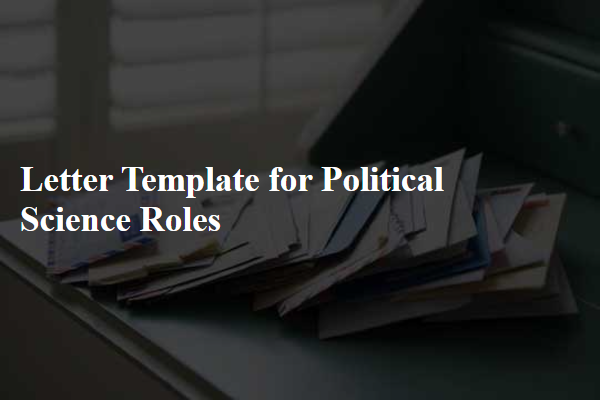
Personalization and Greeting
Political science roles often require a deep understanding of governance, public policy, and international relations. Candidates must demonstrate knowledge of key political events, notable figures such as politicians and activists, pivotal documents like constitutions and treaties, and current issues impacting society. Applicants should personalize their communication by addressing specific roles, organizations, or events, emphasizing their unique qualifications and experiences related to demonstrated leadership, analytical thinking, and problem-solving skills. By showcasing a commitment to civic engagement and an understanding of the political landscape, candidates can effectively connect with their potential employers.
Relevant Experience and Expertise
Political science roles require a deep understanding of governmental structures, public policy analysis, and political theory. Each candidate should highlight experiences such as internships at policy think tanks, such as the Brookings Institution, or participation in legislative processes within local government bodies, like city councils. Knowledge of key political events, such as the 2020 U.S. Presidential Election, can showcase analytical skills while familiarity with significant international agreements, like the Paris Agreement on climate change, highlights a global perspective. Academic achievements, such as a degree from institutions like Harvard University's John F. Kennedy School of Government, further demonstrate commitment to the field. Relevant coursework in international relations, comparative politics, and public administration will provide insight into the candidate's analytical capabilities and policy formulation skills.
Connection to Political Science Field
The study of political science encompasses critical analysis of governmental systems, political behavior, and policy-making processes, vital for understanding societal structures. Political scientists utilize various methodologies, including qualitative and quantitative analysis, to examine interactions within institutions and between actors like voters, politicians, and interest groups. Events such as elections, legislative sessions, and international summits, notably the United Nations General Assembly held in New York City, provide rich context for research. Key theories, such as realism and liberalism in international relations, help frame discussions about global power dynamics. Major areas of expertise within the field involve comparative politics, public administration, and political theory, enabling professionals to assess the implications of decisions made in political arenas. Understanding the influence of historical context, like the Cold War's impact on modern diplomacy, remains essential for aspiring political scientists committed to making informed contributions to public discourse and policy development.
Specific Skills and Competencies
In political science roles, research skills are crucial for analyzing political systems and behaviors, often requiring proficiency in quantitative and qualitative methodologies. Analytical skills enable the evaluation of political data, including polling results and legislative impacts, while strong communication abilities, both verbal and written, are essential for articulating complex ideas to varied audiences, including public stakeholders and policymakers. Understanding of political theory and history provides context for contemporary issues, and knowledge of relevant laws and regulations guides informed decision-making. Additionally, skills in public speaking and negotiation are important for advocating policies, while digital literacy in tools such as data visualization software enhances the ability to present findings effectively. Adaptability and crisis management skills are vital when navigating rapidly changing political landscapes, particularly during election cycles or significant policy shifts.
Call to Action and Closing Remarks
Political campaigns often emphasize the urgency of civic engagement and the importance of voter participation. Mobilization activities, such as rallies, phone banks, and door-to-door canvassing, aim to encourage community members to take action. For instance, local events in key battleground states, such as Pennsylvania and Wisconsin, can be crucial in influencing electoral outcomes. Advocacy groups frequently emphasize the necessity of voting rights protection, especially in light of recent legislation affecting voter accessibility. Effective communication strategies are vital, utilizing social media platforms like Twitter and Facebook to reach younger demographics and underscore the significance of each vote. Engaging narratives and personal stories can serve as powerful motivators, reinforcing the belief that individuals have the power to make a difference in their communities and beyond.
Letter Template For Political Science Roles Samples
Letter template of inquiry for political science research opportunities.
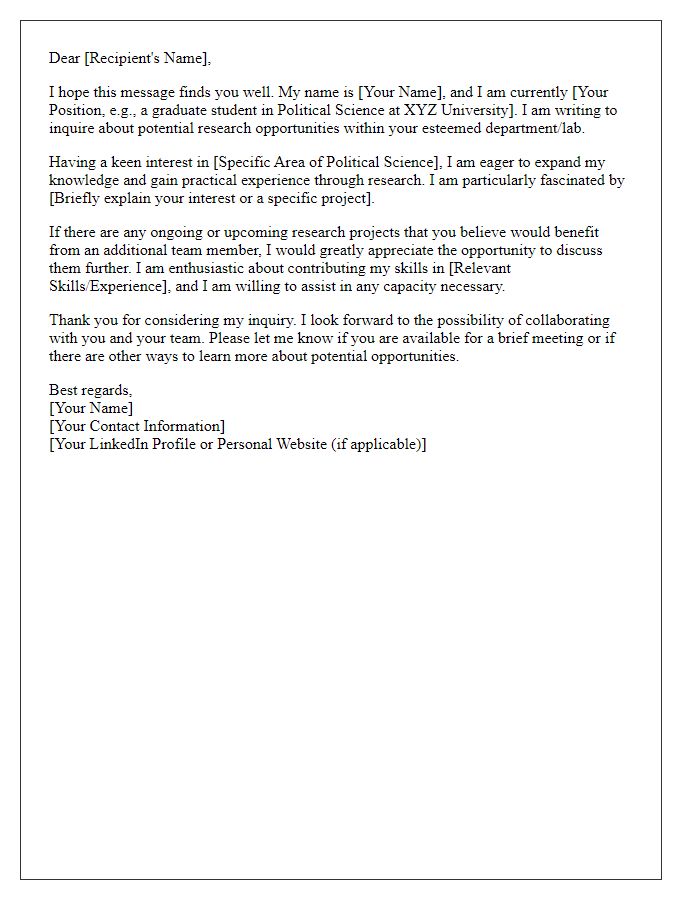
Letter template of request for informational interview in political science.
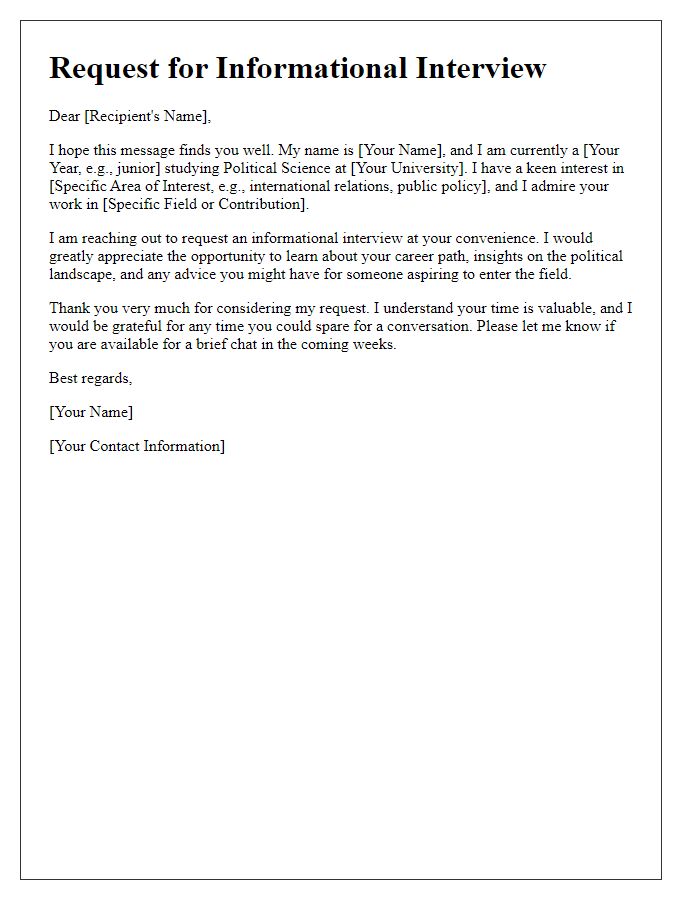
Letter template of networking outreach for political science professionals.
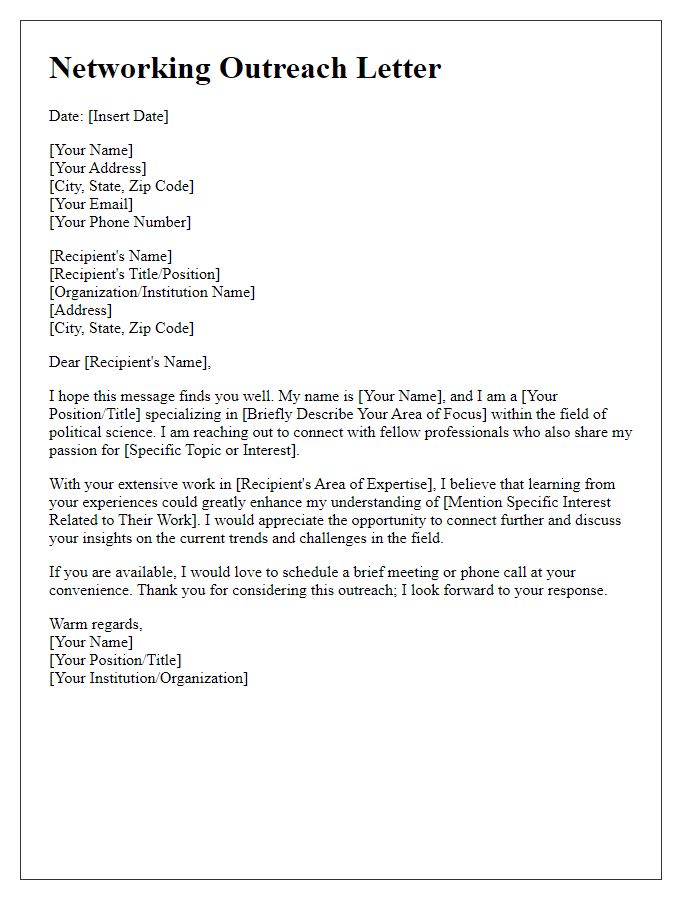
Letter template of proposal for political science project collaboration.
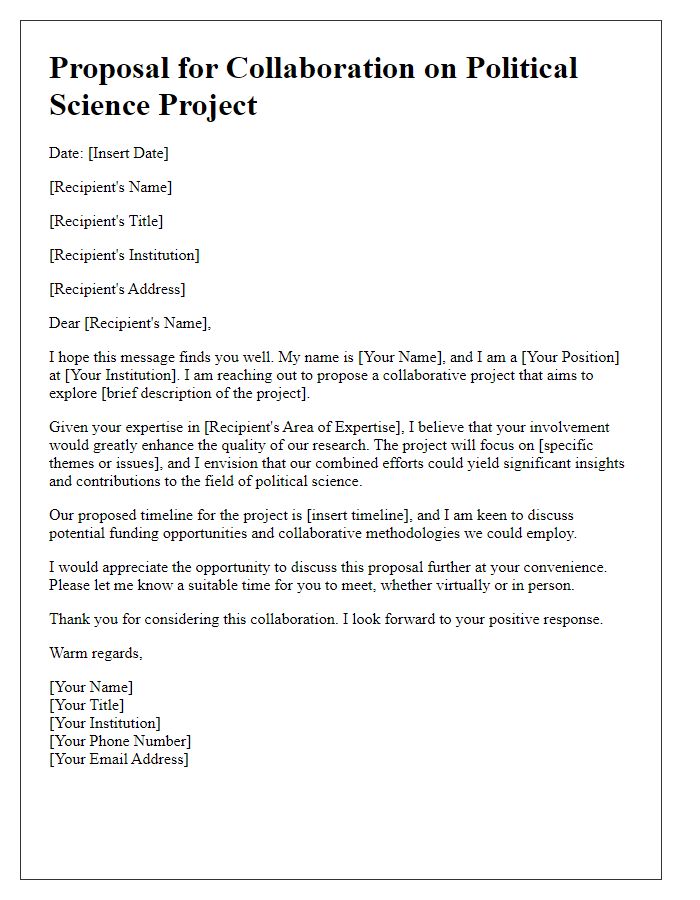
Letter template of recommendation request for political science graduate program.
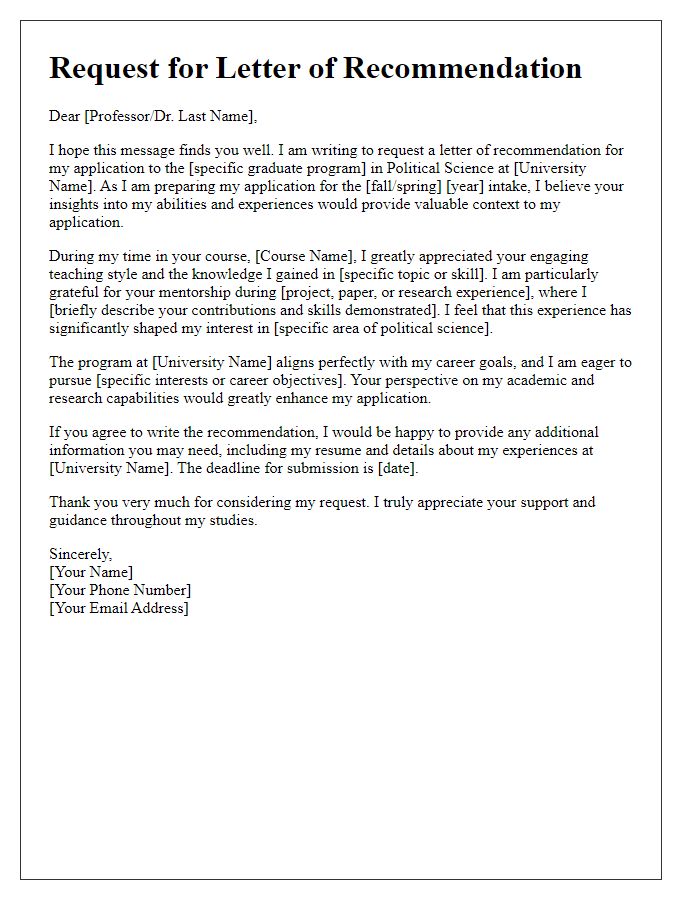

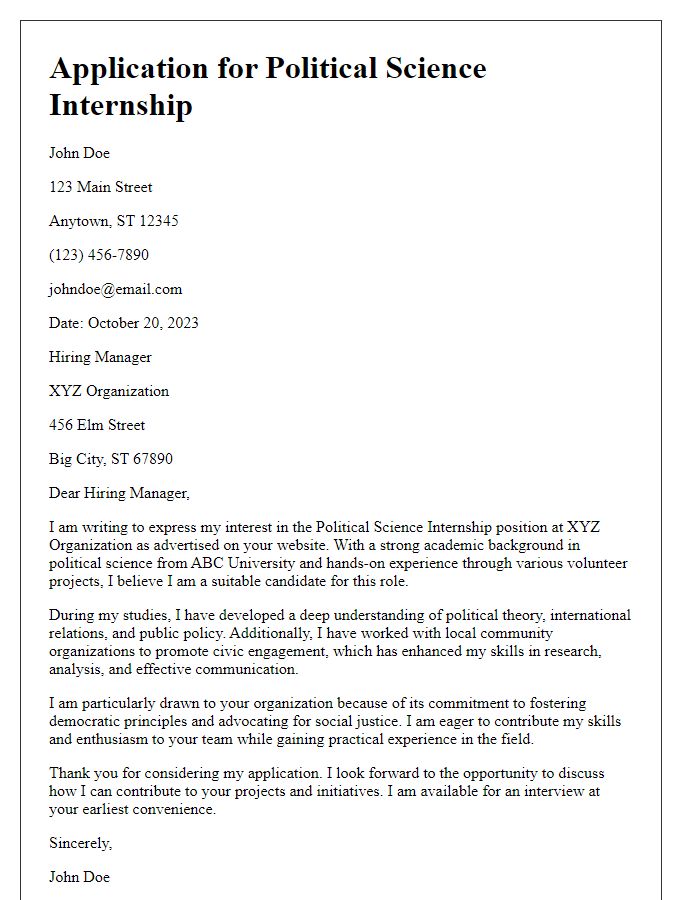
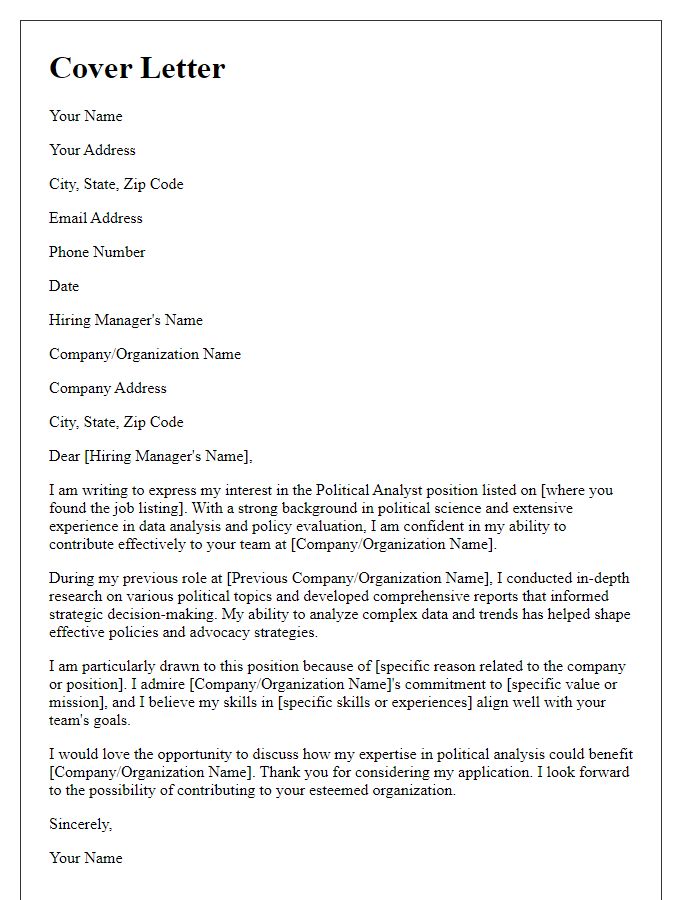
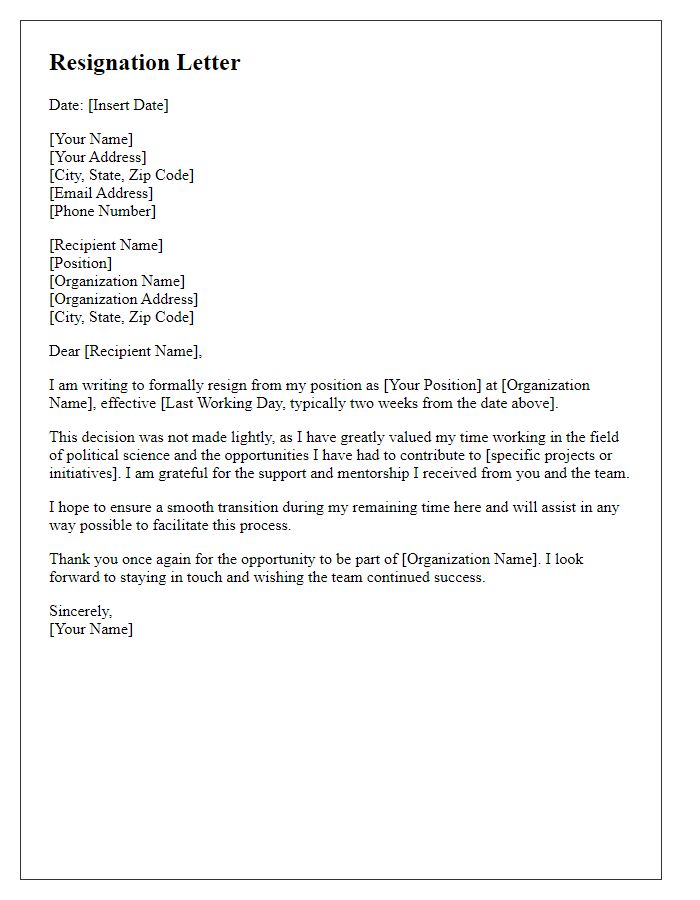
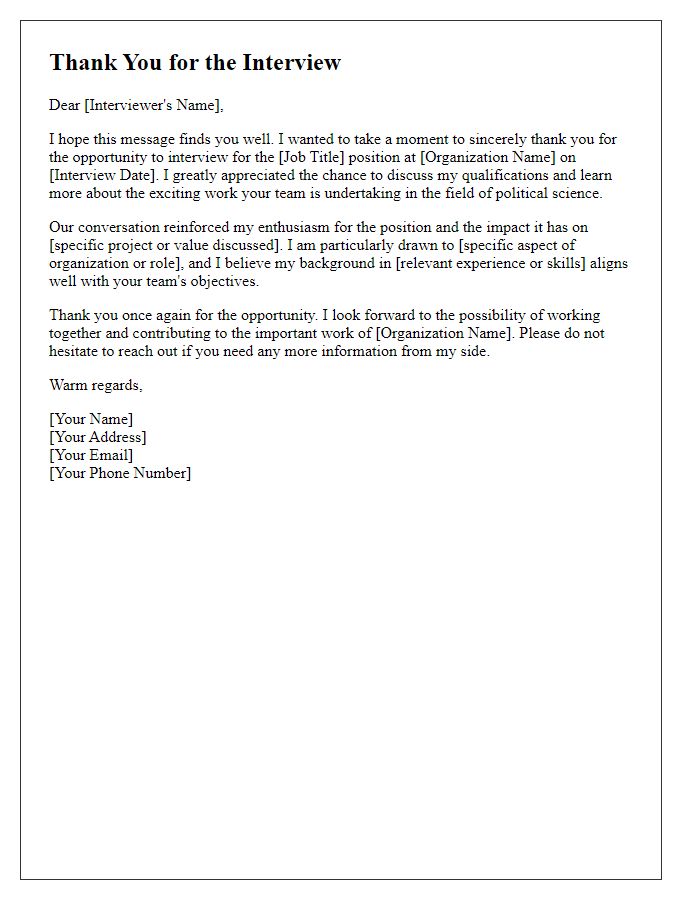
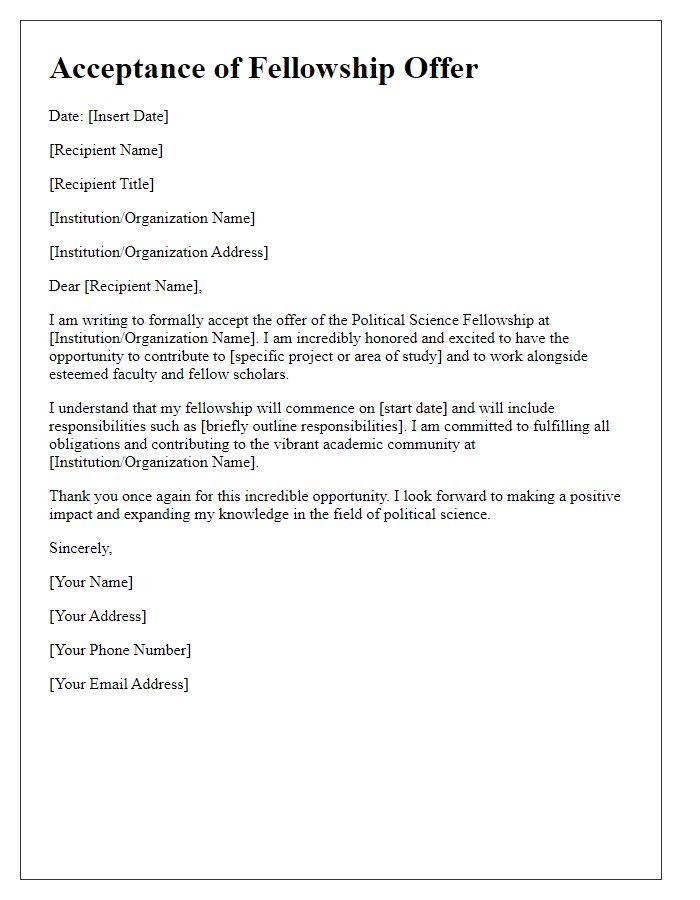


Comments